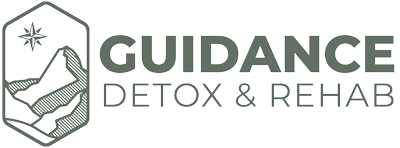Addiction detox involves more than simply ceasing substance use. It occurs in a controlled setting where medical professionals evaluate individual needs and develop a personalized treatment plan for those struggling with addiction.
In this article, we explore the addiction detox process, highlighting how it involves more than just stopping drug or alcohol addiction. You’ll learn about personalized medical care, management of drug or alcohol withdrawal symptoms, and the essential support systems that help individuals safely navigate this challenging but crucial first phase of addiction recovery.
What is Detox?
The detoxification process, often referred to as detox, serves as the initial step in addressing addiction. This process involves the removal of addictive substances from the body and the preparation for subsequent recovery interventions. It’s typically conducted under medical supervision in a licensed and certified drug and alcohol detox center to ensure both safety and support for those undergoing it.
During detox, individuals may experience withdrawal symptoms, which can vary greatly in intensity depending on the substance involved and the duration of use. The management of drug and alcohol withdrawal symptoms is a critical part of the detox process and aims to ease withdrawal symptoms while establishing a foundation for ongoing addiction treatment.
It is important to recognize that while detox is an essential part of addiction treatment, it isn’t a standalone solution for substance use disorder. It prepares individuals for further therapeutic interventions that will address the psychological, behavioral, and social aspects of addiction.
Read more on how to prepare for drug and alcohol detox here.
The Detox Process: Step-by-Step
The detox process involves a structured treatment process aimed at facilitating recovery from substance use.
Initial Assessment
Initially, a thorough medical assessment is conducted to evaluate the individual’s overall health, substance use history, and any underlying medical or mental health conditions. This step is critical, as it provides the foundation for developing a personalized detox plan that addresses their unique health needs, ensures safety during withdrawal, and sets the stage for long-term recovery.
Stabilization of Symptoms
As individuals progress through a medically assisted detox program, they may encounter symptoms of withdrawal from alcohol and other drugs. The symptoms during detox may include nausea and anxiety. Healthcare professionals will manage and monitor the individual’s condition closely and may administer medications, based on the long-term treatment plan, to alleviate discomfort and manage withdrawal effectively.
Emotional support from trained staff plays a key role during this phase. The psychological aspects of the withdrawal process can be challenging, and having access to support can help individuals navigate these difficulties.
Transitioning to Further Treatment
Once the body is free from substances and withdrawal symptoms are managed, individuals are often left vulnerable to relapse without continued support and care. Entering a structured treatment program—whether inpatient, outpatient, or intensive outpatient—provides the therapeutic resources needed to address the psychological, emotional, and behavioral roots of addiction. This next phase typically includes counseling, group therapy, education about addiction, and the development of coping skills to manage triggers and cravings.

How Long Does Detox Last?
The length of detox varies widely depending on the substance involved, the severity and duration of use, and individual health factors. Generally, detox from drugs or alcohol lasts between 3 to 10 days, with most people completing the acute withdrawal phase within a week.
For example, alcohol detox symptoms typically begin within hours of the last drink, peak at around 72 hours, and taper off over 5 to 7 days. However, some symptoms may persist for up to two weeks or longer in severe cases.
Opioid detox usually lasts 4 to 10 days, while detox from benzodiazepines can extend from 2 to 4 weeks, particularly for those with long-term or high-dose use.
Stimulant detox, such as from cocaine or methamphetamine, generally ranges from 7 to 14 days, though psychological symptoms and cravings may linger for months.
Factors that influence detox duration include the type of substance, amount and frequency of use, method of ingestion, presence of co-occurring medical or mental health conditions, and individual metabolism.
What Happens After Detox?
Following detox, it’s important to transition into structured addiction treatment and recovery programs. This phase is essential for addressing both the physical and psychological components of addiction.
Therapy and counseling are critical as they allow individuals to process their past experiences and develop effective coping mechanisms for maintaining sobriety.
It is common for withdrawal symptoms to persist after going through detox, which makes continued professional support a necessity. Rehabilitation programs typically incorporate outpatient detox services designed to assist individuals as they navigate the recovery process.
Supervised detox is aimed at promoting long-term sobriety by equipping individuals with skills to manage triggers, cravings, and stressors that may arise in daily life, ultimately contributing to a healthier lifestyle.
Recovery is recognized as a continuous journey, and utilizing available resources can enhance the likelihood of achieving and sustaining sobriety.
Thus, a thorough approach that encompasses both immediate care in rehabilitation and ongoing support is crucial for individuals seeking to overcome addiction.
Here you can find more information on what to expect after medical detox and how to prepare for the next stage of your recovery.
Final Thoughts from Guidance Detox & Rehab
Drug or alcohol detox is the first step in overcoming addiction. It involves managing withdrawal symptoms and preparing individuals for subsequent treatment options. Understanding the detox process, including its typical duration and what follows, can help individuals navigate this phase more effectively.
Guidance Detox & Rehab provides medically supervised and personalized detox programs in Utah, guided by compassionate healthcare professionals in a peaceful mountain retreat. These programs are designed to support your body’s healing and help you regain clarity, energy, and peace of mind on your path to recovery.
